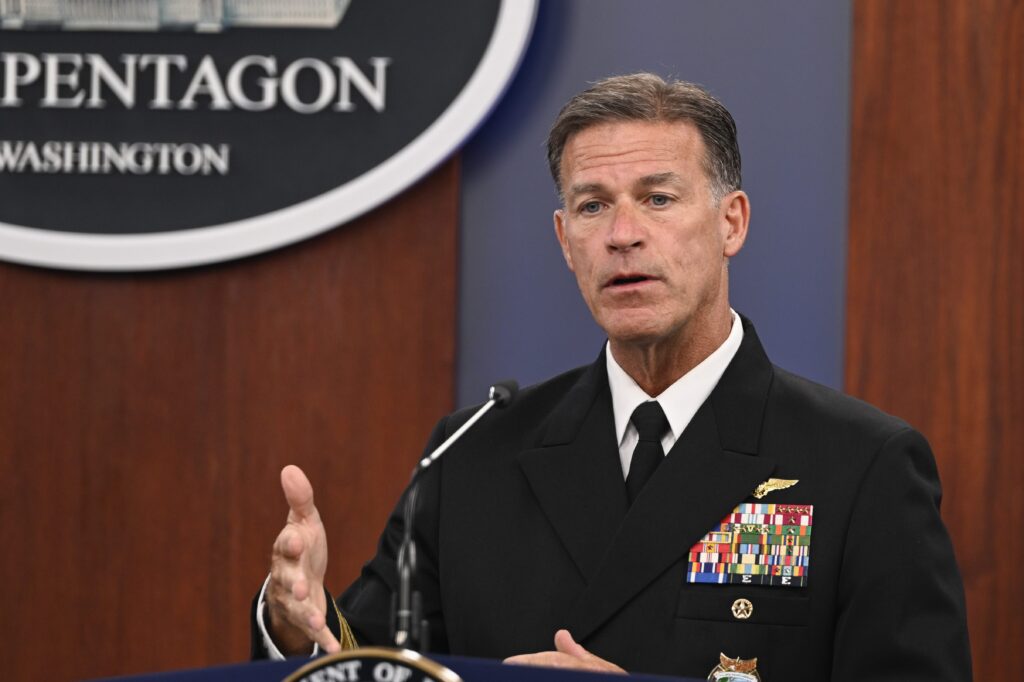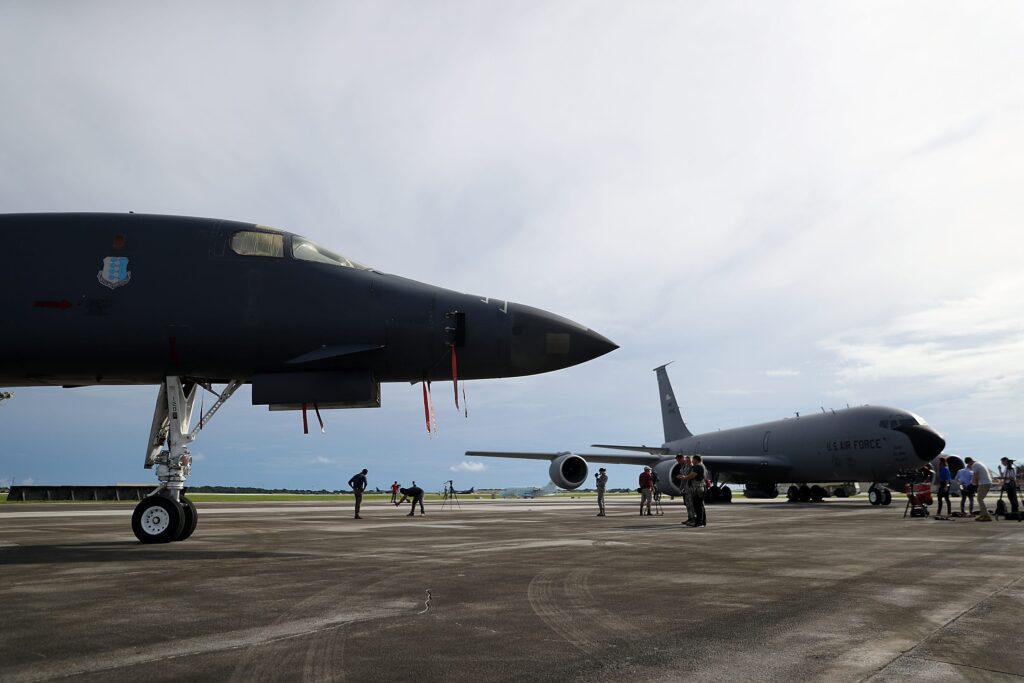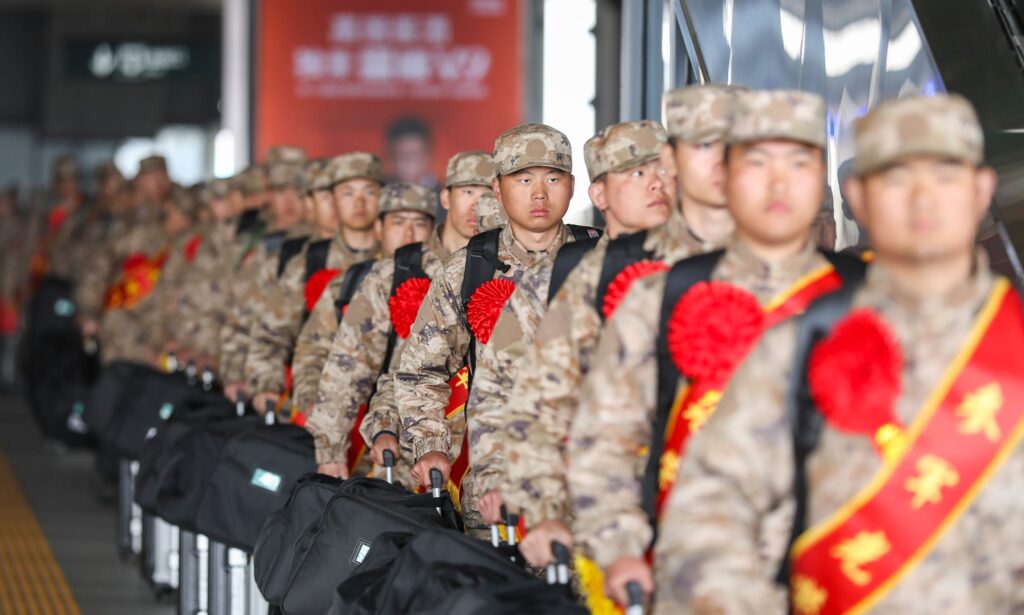- US Adm. John Aquilino said China's military is building up at a rate not seen since World War II.
- That puts it on the path to meeting its goal of being ready to invade Taiwan by 2027, he said.
- Aquilino, the outgoing head of the US Indo-Pacific Command, urged Washington to accelerate military development.
China's rapid military build-up is more expansive than anything seen since World War II, which means it's on track with its 2027 goal to be ready for a Taiwan invasion, said US Navy Adm. John Aquilino.
"All indications point to the PLA meeting President Xi Jinping's directive to be ready to invade Taiwan by 2027," Aquilino wrote in a testimony to the US Armed Services House Committee.
"Furthermore, the PLA's actions indicate their ability to meet Xi's preferred timeline to unify Taiwan with mainland China by force if directed," added the admiral, the outgoing head of the US Indo-Pacific Command.

Notably, Aquilino told lawmakers in a hearing on Wednesday that he also believes China still hopes to assimilate Taiwan without war, though Beijing is fast approaching the capacity for an assault.
He and Assistant Defense Secretary for the Indo-Pacific Command Ely Ratner both said the threat of direct conflict between the US and China is "neither immediate nor inevitable," but that the Pentagon must move fast to reduce the risk of war.
His projected timeline aligns with the one given by his predecessor, Ret. Adm. Philip Davidson, and other US military leaders that China seeks to reach Taiwan invasion capabilities by 2027 while not necessarily wanting war.
Aquilino wrote in his testimony that of the three main US concerns in the region — Russia, China, and North Korea — China is the "only country that has the capability, capacity, and intent to upend the international order."
"On a scale not seen since WWII, the PLA's buildup is occurring across land, sea, air, space, cyber, and information domains," he added.
China's military has added more than 400 fighter aircraft and 20 warships to its arsenal and doubled its missile inventory in the last three years, Aquilino said.
At the same time, Beijing has increased the number of satellites it fields by 50% and more than doubled its nuclear warhead arsenal, he added.
Aquilino urged the US to intensify its military development, saying threats in the Indo-Pacific continue to "grow and accelerate."
"We must go faster," Aquilino repeatedly told lawmakers over the two-hour hearing on Wednesday.
He recommended deploying systems in Guam that can defend against hypersonic and cruise missiles by 2027, two years earlier than the 2029 deadline set by Congress in December.

This year, the Indo-Pacific Command flagged in a priority wish list that it hoped for $11 billion more than the funds allocated by the White House, with $430 million requested for the Guam missile defense system, per documents obtained by Politico Pro.
China has not officially signaled a coming war with Taiwan. However, Xi has said that he believes unification is inevitable. He's also refused to rule out assimilating the self-governed island by force.
Analysts have debated its ability to successfully pull off an amphibious invasion of the island, and the likelihood and timeliness of US intervention are central to the calculus.
If it were to invade Taiwan, Beijing would have the herculean task of safely moving a mass ground force over the strait. China does appear to be exploring transport options like requisitioning civilian ships to help with transport.
On the other hand, analysts say Taiwan's best bet for defense is likely to hold out for the US to arrive.
Meanwhile, US leaders have been concerned with Xi's mandate to make China's military a "world-class" force by 2027, as the White House fears that Beijing seeks to supplant the US as the dominant power in the Indo-Pacific and eventually the rest of the globe.
More recently, Beijing's forces were caught up in a corruption scandal that saw Xi ousting multiple senior leaders — including some from its heavily emphasized Rocket Force.
The purge and reports of graft materially affecting China's arsenal triggered questions internationally about the true strength of the People's Liberation Army, and if Xi's military goals have been delayed.
